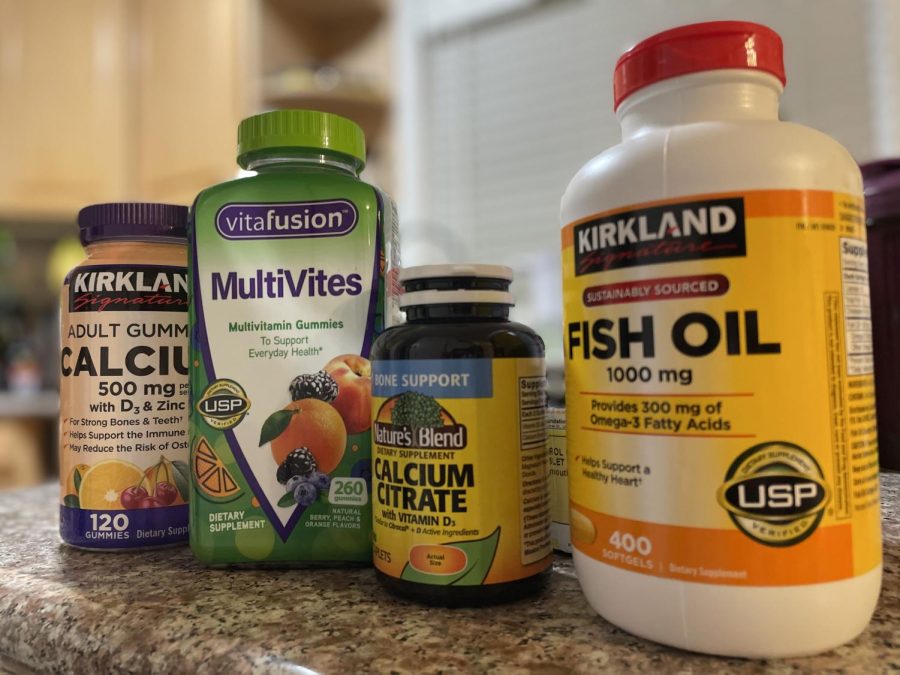Best sports supplements for high school athletes
Multivitamins are one of the best supplements a high school athlete can take. They are among the safest and most cost-effective options available.
Dozens of sports supplements are accessible to high schoolers, and those that regularly participate in physical activities should not undermine their efficacy. Here are the best sports supplements for high school athletes, along with their positive and negative effects to decide which may be the best to take.
“My message (to those starting to take supplements) would be to make sure that they meet up with their primary care physician. Talk to them about the pros and cons so athletes are fully aware of everything that goes with all different types of supplements,” said sports medicine teacher Diana Hasenpflug.
Multivitamins
Men and women need different amounts of vitamins and minerals each day. Taking multivitamins through tablets, powders, liquids, capsules, or gummies is the best way to reach those daily requirements.
Multivitamins are dietary supplements containing many vitamins that should include potassium, zinc, calcium, magnesium, and many more. Multivitamins don’t enhance muscle growth directly but help individuals stay healthier overall.
“(Multivitamins) are better, it can help improve your health, and it’s really easy to use. I feel more awake and I’m better able to do stuff. I feel more energy, more alive, and it really gets me through the day,” said varsity soccer player Chase Lee (‘23).
Creatine
Creatine is located naturally in the body and taken through shakes, pills, and powder form. It is also found in salmon, tuna, and other sources of fish and poultry.
Creatine has been proven to increase water retention and give your body energy to perform better. However, side effects may include weight gain, dehydration, bloating, cramps, and diarrhea.
“There are pluses and minuses with creatine, but I feel that it’s a personal choice. If they believe in what (creatine) does for them and makes them better in their performance, so be it,” said Hasenpflug.
BCAA (Branch Chain Amino Acids)
BCAA can be found in powder form and in other food sources in everyday meals. These amino acids contain valine, leucine, and isoleucine which can help your body better produce protein.
BCAAs are important sources of energy for prolonged endurance exercise. Supplementation is proposed to increase endurance, body fat loss, and can decrease chronic fatigue or overtraining symptoms.
Whey Protein
Whey protein is typically taken through drinks, bars, and powders. It’s been a favorite post-workout supplement for many athletes as it aids recovery and body metabolism, develops muscles, and can burn fat for some individuals.
“Side effects can be taking in too much protein in that particular area. That’s always where you’re at a disadvantage, and it can counteract some other numbers,” said Hasenpflug.
Glutamine
Glutamine can be found in powder form and in many other common food items. It helps with muscle recovery, fighting catabolism, wound healing, immune function, and chemotherapy-induced mucositis.
“I don’t think (taking glutamine) would hurt as long as it’s over-the-counter. It’s just staying within the dose of what they want to do,” said Hasenpflug.
Your donation will support the student journalists in the AVJournalism program. Your contribution will allow us to purchase equipment and cover our annual website hosting costs.

